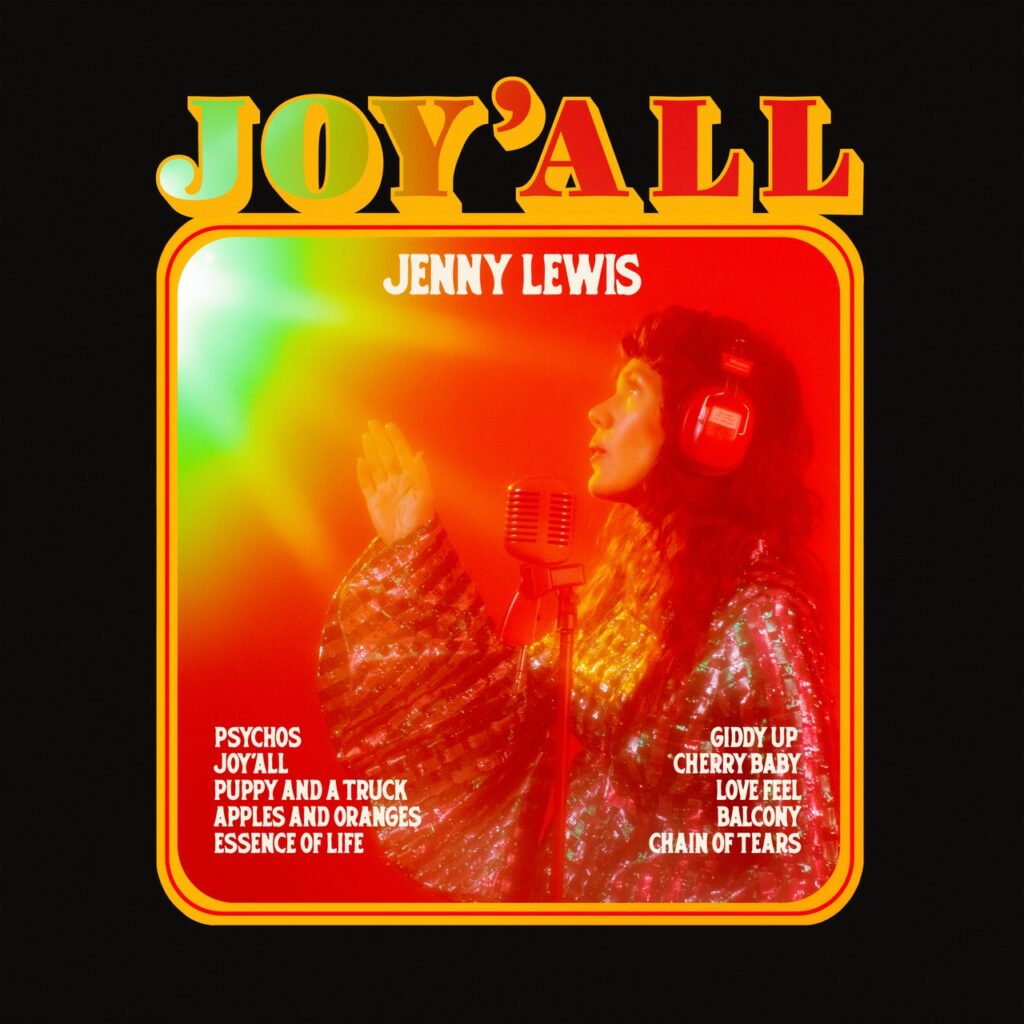A performer who survived Toys R Us commercials, anti-drug PSAs, and the Shelley Long comedy Troop Beverly Hills, Jenny Lewis has tried to be, to quote Henry James, one of the people on whom nothing is lost. The former co-leader of Rilo Kiley has mastered the sweetly sung, acrid send-up of grifters and drifters, and the valentine to dirtbags and carpetbaggers. L.A. men, she understands, can be as gross and addictive as Red Bull and Hennessy. “This shit is crazy town,” she sings on “Psychos,” the opening track to her fifth solo album, Joy’All; the trick to Lewis is the way her remark might work as both general observation—she’s called the song “an existential take on dating in the modern age”—and a reference to the authors of “Butterfly.”
Her latest music needs that kind of vulgarity. Written as part of a Beck-organized songwriting camp in Nashville and recorded by country pro Dave Cobb, Joy’All has an amiable listlessness: It’s loveable, but I wish there was more to love. The songs rely on samey acoustic strumming. The middle stretch (“Giddy Up,” “Cherry Baby”) barely exists. The many bon mots often float like cornflakes in cold milk atop dull melodic structures (“Psychos” being the obvious example). Country music, despite stereotypes about its casualness, requires precision: Call it the real studio rock. Lewis, adept at a country-leaning aesthetic since at least Rilo Kiley’s 2002 album The Execution of Small Things, has assembled a strong band: Jess Wolfe on backing vocals, Jon Brion on sundry keyboards, and Cobb himself, among others, on guitar are standouts. But it’s as if Lewis forbade them from fussing up her material.
For Lewis, the erstwhile Hollywood scenester, country resonates as a genre that rewards the performance of feeling and foregrounds the outsider-as-insider. On her solo debut, Rabbit Fur Coat, she embraced bluegrass and the harmonizing aplomb of Parton-Ronstadt-Harris. Joy’All attempts a more conventional genre tightroping. “Marvin Gaye, Timberlake, Hank Williams, Johnny Cash, John Prine, Waylon and Willie,” she sings in “Love Feel” (Justin Timberlake’s here presumably not for the way he holds a guitar). That the list includes not a single woman is fascinating, an example of the way in which certain female country-adjacent rock acts obsess over the masculine performance of sensuality and toughness—what, no Tammy, Reba, Rosanne, and Miranda? To confuse matters, she offers this affirmation in “Psychos”: “I’m a rock-and-roll disciple in a video game.”
An album composed for adults whose songs target men who act like boys, Joy’All makes no concessions to the youth market. “My forties are kicking my ass and handing them to me in a margarita glass,” she reveals on “Puppy and a Truck,” one of the songs destined to enter her canon—fingerpoppin’ folk-pop in the mode of “Me and Julio Down by the Schoolyard,” or pick-your-track from hero John Prine’s flawless mid-’70s run. Bassist Brian Allen lays down a bubblicious groove on the precisely inhabited title track, where Lewis rhymes “adore ya” and “troll ya.” Its spare white funk gives the impression that Lewis heard and liked Fiona Apple’s Fetch the Bolt Cutters.
Still, I miss those serrated instrumental gracenotes on previous kiss-offs—say, Ryan Adams’ guitar solo in “She’s Not Me,” a masterpiece of accretive sourness (imagine what Cobb client Jason Isbell might’ve contributed to this album’s boring songs, and how he might’ve given shock treatment to the good ones). Twenty years in the biz imbues artists with resourcefulness, though, and Joy’All’s quietest song is its most chilling. “The essence of life is suffering,” Lewis sings in the mournful “Essence of Life,” but before you call bullshit she acknowledges in another verse the paradox: “The essence of life is ecstasy.” The instrumental filigrees work: Beneath her vocal track a tremoloed pedal steel line by Greg Leisz underscores the sentiment. Melding her aphoristic instincts and country’s variations on performative sadness, “Essence of Life” distills how a singer-songwriter of Lewis’ acuity can kick ass in her forties. She has songs enough, and time.
All products featured on Pitchfork are independently selected by our editors. However, when you buy something through our retail links, we may earn an affiliate commission.

